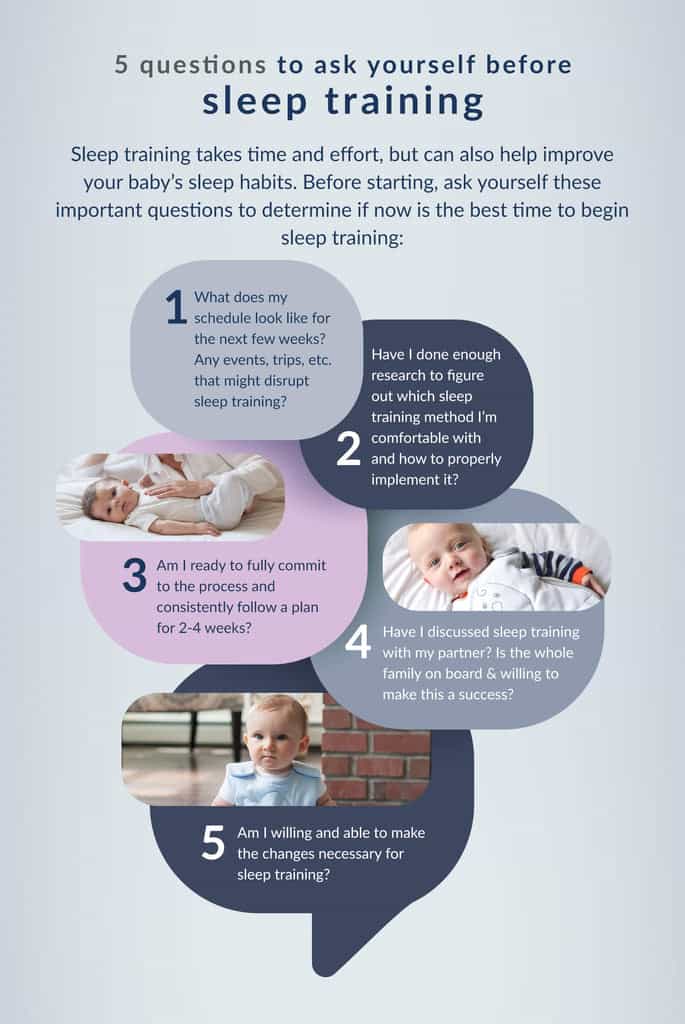Sweet Dreams Ahead: Your Guide to Sleep Training Your 8-Month-Old
Welcome, tired but hopeful parents! If you’ve been dreaming of a full night’s sleep since your little one came into the world, you’re in the right place. At 8 months old, your baby is ready for some gentle guidance towards better sleep habits, and we’re here to walk you through the steps of sleep training with warmth, care, and understanding. Soon, your nights will be filled with more Zzz’s and less pacing the floor. Let’s embark on this dreamy journey together!
Understanding Your 8-Month-Old’s Sleep Needs
Before we dive into the whys and hows of sleep training, let’s understand what typical sleep looks like for an 8-month-old. At this playful and curious age, most babies need about 14 hours of sleep over a 24-hour period. This is usually divided into 11-12 hours at night and 2-3 hours of daytime naps. Recognizing these needs sets the stage for a successful sleep training experience.
Establishing a Soothing Bedtime Routine
A predictable bedtime routine is like a warm, snug blanket for your baby’s sleep schedule. Creating a series of calming activities about 30 minutes before bedtime signals to your little one that it’s time to wind down. This can include a warm bath, a gentle massage, soft music, or a bedtime story. The key is consistency, so try to start these activities at the same time each night.
The Art of Creating a Sleep-Inducing Environment
Just as we adults cherish a comfortable bedroom setting, babies flourish in a sleep-friendly environment. Ensure your baby’s room is cool, dark, and quiet. Consider using a white noise machine to drown out household or street noise. A comfortable crib, free from toys and loose bedding, invites a safe and distraction-free sleep.
Navigating the Sleep Training Methods
Sleep training is not one-size-fits-all, and that’s okay! You have various methods at your disposal, from the “Cry It Out” approach to more gradual techniques like the “Ferber” or “No Tears” methods. What’s important is choosing a method that feels right for your family’s needs and sticking to it consistently. Patience, perseverance, and positivity are your best friends during this time.
Common Sleep Training Challenges and Troubleshooting
Even with the best plans in place, you might face some hiccups along your sleep training journey. Teething, growth spurts, and illness can all disrupt your baby’s sleep patterns. Fear not, though! We’ll help you understand these challenges and how to adapt your approach, ensuring sleep training remains on track.
The Importance of Daytime Naps
Believe it or not, better nighttime sleep starts with solid daytime naps. Ensuring your 8-month-old has regular, restful naps can improve their nighttime sleep. We’ll guide you on how to schedule naps and how long they should be to support your sleep training efforts effectively.
Ready, Set, Sleep Train!
Armed with knowledge and bolstered by the promise of rested nights ahead, you’re now ready to begin. Remember, sleep training is a journey that requires patience and adaptability. Some nights will be easier than others, but with a consistent approach, you’re on the path to sweet dreams for you and your baby. So, take a deep breath, share a cuddly goodnight with your little one, and let’s start the adventure of sleep training your 8-month-old.
Keep reading for detailed strategies, tips, and the encouragement you need to help both you and your baby get the well-deserved rest you need. And remember, you’re not alone on this journey to the land of Nod. Countless parents have tread this path before, and with this guide by your side, you’re equipped to join the ranks of the well-rested. So, tuck in, and let’s get those Zzz’s!

Five Things Every Parent Should Know Before Sleep Training an 8-Month-Old
- Patience is Key: Understand that sleep training is a process that might require some time to see results. Being patient with your baby and with yourselves is crucial. Go into it with realistic expectations, knowing there will be good and rough nights.
- Consistency is Your Golden Rule: Once you choose a sleep training method, stick with it. Consistency allows your baby to learn and adapt to new sleep habits. Changing methods frequently can be confusing, hindering the progress.
- Emotional Preparedness: Sleep training can be emotionally taxing. There might be tears and frustration, and it’s important to prepare yourself mentally for this. Support from partners, family, or friends can be invaluable during this time.
- Health Check-Up: Before starting, ensure your baby is healthy and there are no underlying medical issues that could be affecting their sleep. Consult with your pediatrician to get the all-clear for sleep training.
- Daytime Activity Level: Ensure your baby has plenty of playtime and interaction during the day. An active baby is likely to sleep better at night, which can make the sleep training process smoother.
Step-by-Step Sleep Training Techniques
Now that you’re geared up with what you need to know before starting, let’s delve into the step-by-step techniques of sleep training. Start by choosing a method that resonates with your parenting style. Whether it’s a check-and-console approach like Ferber or a more gradual method like fading, begin by implementing it progressively. Ensure your bedtime routine is in sync with the method you choose and stick to it firmly and lovingly.
When to Seek Help
There’s no shame in reaching out for help if you’re struggling with sleep training. Sometimes, an outside perspective from a pediatric sleep consultant or a conversation with your pediatrician can offer tailored advice and reassurance. Remember, every family is unique, and what works for one may not work for another; professional guidance can be tailored to your specific situation.
Nurturing Sleep Associations
Positive sleep associations are your allies. These are things your baby associates with sleep time, like a specific sleep sack, a white noise machine, or a pacifier. They provide comfort and signal to your baby that it’s time for sleep. As long as these associations don’t involve you having to wake up and assist your baby back to sleep every time they wake up (like rocking or feeding to sleep), they can be part of a successful sleep training regimen.
Infusing your nights with tranquility and your days with the delight of a well-rested family and a happy baby is what we aim for in sleep training. By creating this comprehensive guide, we hope to empower you with knowledge, strategies, and the confidence to guide your 8-month-old gently into a routine that encourages optimal sleep. Rest assured, with a blend of preparation, understanding, and commitment, your family will discover serenity in slumber.
Tailoring Sleep Training to Your Baby’s Individuality
Every baby is a unique individual with different soothing responses and sleep patterns. As you navigate sleep training, remember to pay close attention to cues from your little one. Flexibility to adapt the chosen method to your baby’s temperament and responses is not just smart; it’s essential for a harmonious sleep training voyage.
Above all, sleep training is not just about the destination of achieving uninterrupted night sleep; it’s also about the journey you embark on with your child. It’s a process of learning, bonding, and understanding your baby deeper. Enjoy these precious moments, and relish the growth you’ll both experience by morning’s light.
Ready to take on the night and guide your sweet pea to dreamland? Pave the way for your baby’s sleep success one gentle step at a time. Keep your head high, your heart open, and your eyes on the prize – a restful slumber for your little star. Sleep train away, dear parents, knowing that these sweeter nights you’re creating are just around the corner.
Tuck these tips and insights close to your heart, as they’re the cuddly companions for your upcoming endeavor. With this friendly guide, you’re well-equipped to solve the nighttime puzzles and cherish the peace that follows. Embrace the process, embrace each other, and most importantly, embrace the beautiful nights and energetic days ahead. Sweet dreams to you and your little one!
See more great Things to Do with Kids in New Zealand here. For more information see here
Disclaimer
The articles available via our website provide general information only and we strongly urge readers to exercise caution and conduct their own thorough research and fact-checking. The information presented should not be taken as absolute truth, and, to the maximum extent permitted by law, we will not be held liable for any inaccuracies or errors in the content. It is essential for individuals to independently verify and validate the information before making any decisions or taking any actions based on the articles.




